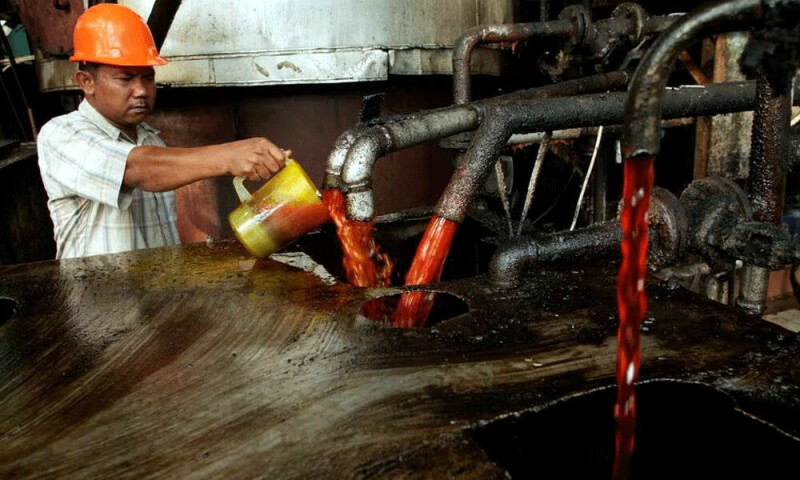JAKARTA: Malaysian palm oil futures closed higher on Wednesday, supported by bargain hunting and firmer sentiment across the edible oils market.
The benchmark palm oil contract for July delivery on the Bursa Malaysia Derivatives Exchange was up 69 ringgit, or 1.74%, at 4,035 ringgit ($919.55) a metric ton at the close, after it rose more than 2% earlier in the day.
“Futures are staging a technical rebound, supported by bargain hunting and firmer sentiment across the edible oil and energy complex,” said Darren Lim, commodities strategist at Singapore-based brokerage Phillip Nova.
The widening discount to soybean oil could spur demand from price-sensitive markets in the near term, he added.
India has started raising palm oil purchases after a lull of five months as a correction in prices has made the tropical oil cheaper than rival soyoil, encouraging refiners to place orders to replenish inventories, four dealers told Reuters.
Dalian’s most-active soyoil contract rose 1.19%, while its palm oil contract added 2.01%. Soyoil prices on the Chicago Board of Trade (CBOT) were up 0.62%.
Palm oil rises on bargain buying, stronger ringgit
Palm oil tracks the price movements of rival edible oils as it competes for a share of the global vegetable oils market.
Indonesia’s crude and refined palm oil exports dipped nearly 2% month-on-month in March, as local consumption rose due to Ramadan. However, shipments were at a four-year high in March.
The ringgit, palm’s currency of trade, weakened 0.27% against the dollar, making the commodity cheaper for buyers holding foreign currencies.
Oil prices climbed more than 1% on Wednesday, extending the prior day’s gains, as investors weighed a fresh round of U.S. sanctions on Iran, a drop in U.S. crude stocks and a softer tone from President Donald Trump towards the Federal Reserve.
Higher crude oil prices make palm a more attractive option for biodiesel feedstock.


